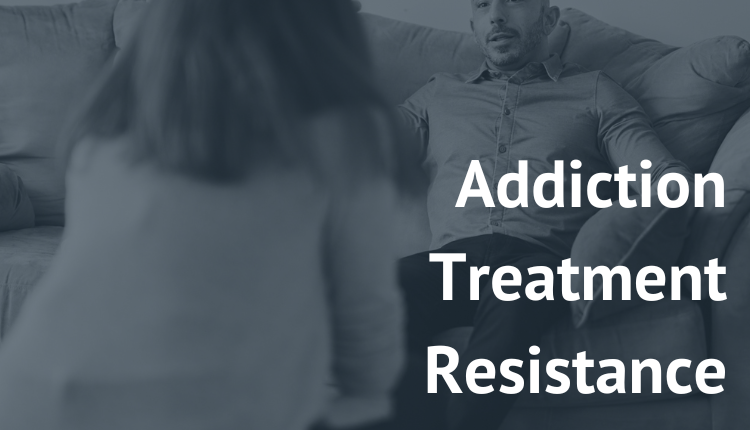Understanding and Addressing Treatment Resistance in Addiction Recovery
When someone we love is struggling with addiction and finally seeks treatment, it might feel like the clouds are finally parting, the rain is letting up, and there are sunny skies on the horizon. Unfortunately, for many individuals, the first try at addiction treatment does not necessarily mean the storm is over. After several attempts at treatment, we may even start to lose hope that things will ever change. While addiction treatment resistance can be disheartening, with the right clinical approach and social supports, it can be overcome.
Treatment resistance is a common challenge in addiction recovery. It is characterized by the reluctance or inability of individuals to engage fully in treatment programs despite their desire to overcome substance use disorders. Understanding the factors contributing to treatment resistance and implementing effective strategies to address it are essential for improving outcomes in addiction treatment. In this clinical guide, we’ll explore the causes of treatment resistance and provide evidence-based approaches to overcome it.
Understanding Treatment Resistance:
Treatment resistance can manifest in various forms, including non-compliance with treatment recommendations, early dropout from programs, or failure to achieve sustained sobriety despite multiple attempts at treatment. Several factors contribute to treatment resistance in addiction recovery, including:
- Ambivalence: Individuals may experience conflicting feelings about change, oscillating between the desire to quit substance use and the fear of losing the perceived benefits of using drugs or alcohol.
- Underlying Psychological Issues: Co-occurring mental health disorders, such as depression, anxiety, or trauma-related disorders, can contribute to treatment resistance by complicating the recovery process and undermining motivation for change.
- Environmental Influences: Social and environmental factors, such as peer pressure, family dynamics, and access to drugs or alcohol, can influence treatment engagement and adherence.
- Lack of Social Support: Limited support from family, friends, or peers who understand the challenges of addiction can contribute to feelings of isolation and hinder recovery efforts.
- Previous Treatment Failures: Individuals who have experienced relapse or unsuccessful treatment attempts may develop a sense of hopelessness or skepticism about the effectiveness of treatment.
Addressing Treatment Resistance:
Effectively addressing treatment resistance requires a comprehensive and individualized approach that considers the unique needs and circumstances of each individual. Key strategies for overcoming treatment resistance in addiction recovery include:
- Motivational Enhancement: Utilizing motivational interviewing techniques to explore and resolve ambivalence, enhance intrinsic motivation for change, and set achievable goals.
- Dual Diagnosis Treatment: Providing integrated treatment for co-occurring mental health disorders alongside substance use disorders to address underlying issues and improve treatment outcomes.
- Cognitive-Behavioral Interventions: Implementing cognitive-behavioral therapy (CBT) techniques to identify and challenge maladaptive thought patterns, develop coping skills, and prevent relapse.
- Family Therapy: Involving family members in the treatment process to improve communication, address family dynamics, and enhance social support for the individual in recovery.
- Peer Support and Community Resources: Connecting individuals with peer support groups, such as Alcoholics Anonymous (AA) or Narcotics Anonymous (NA), and community resources to provide ongoing support and encouragement in recovery.
- Medication-Assisted Treatment (MAT): Incorporating FDA-approved medications, such as buprenorphine or naltrexone, into treatment plans to alleviate cravings, reduce withdrawal symptoms, and support long-term recovery.
Conclusion:
Treatment resistance poses significant challenges in addiction recovery, but it is not insurmountable. By understanding the underlying factors contributing to treatment resistance and implementing evidence-based approaches to address them, clinicians can improve outcomes and support individuals in achieving lasting sobriety. With a holistic and individualized approach that integrates motivational enhancement, dual diagnosis treatment, cognitive-behavioral interventions, family therapy, peer support, and medication-assisted treatment, individuals can overcome treatment resistance and embark on a path towards sustained recovery and wellness.

